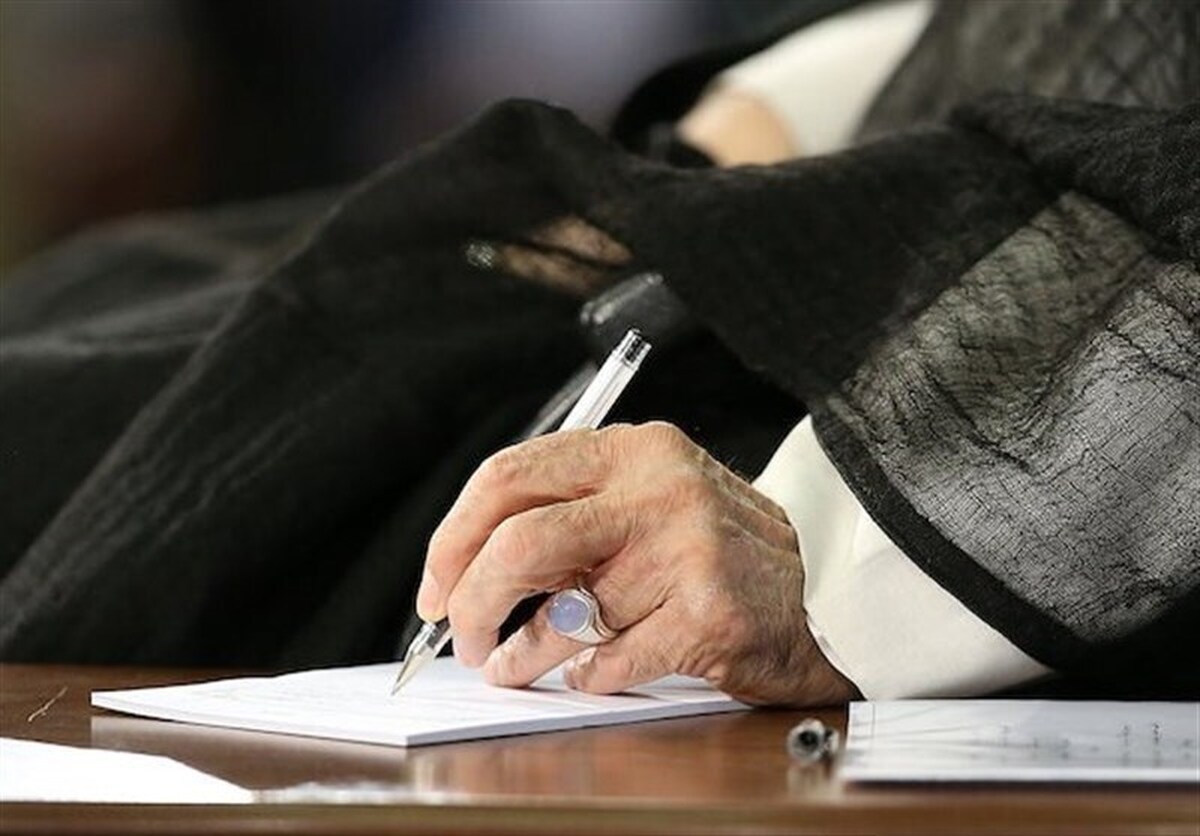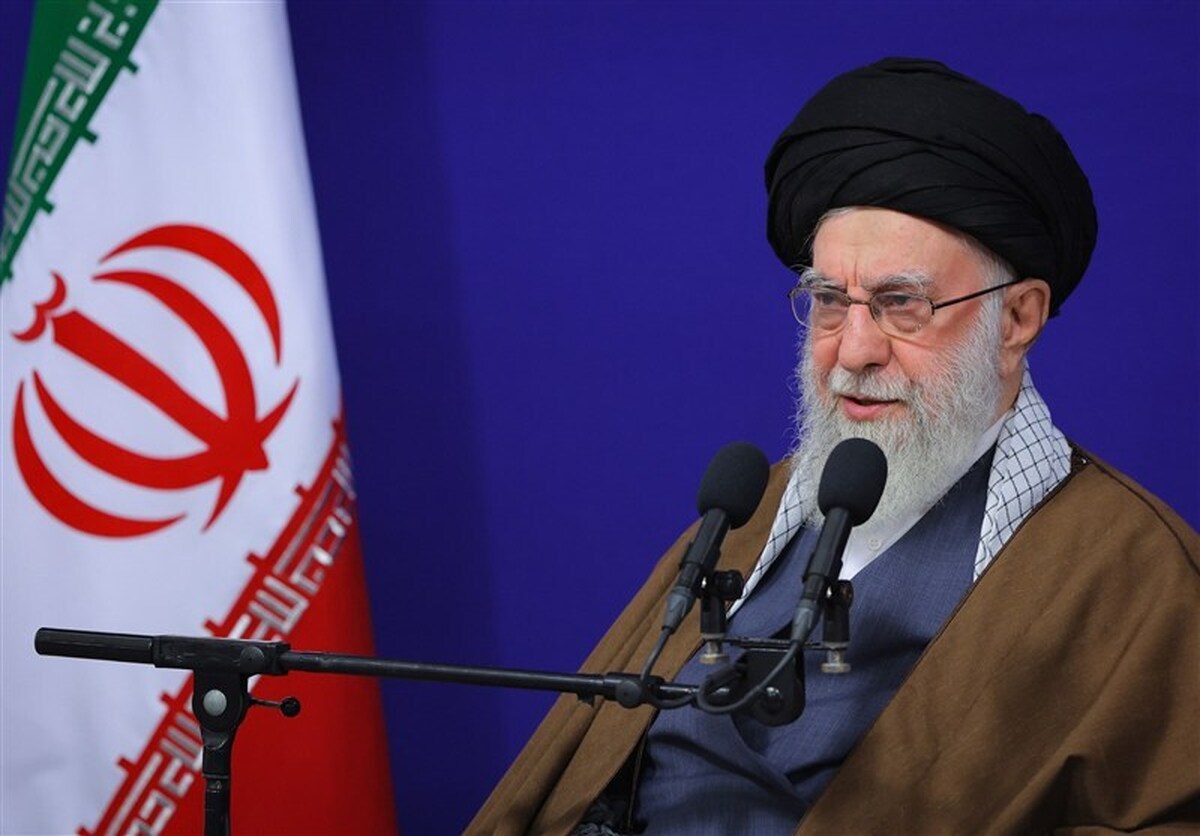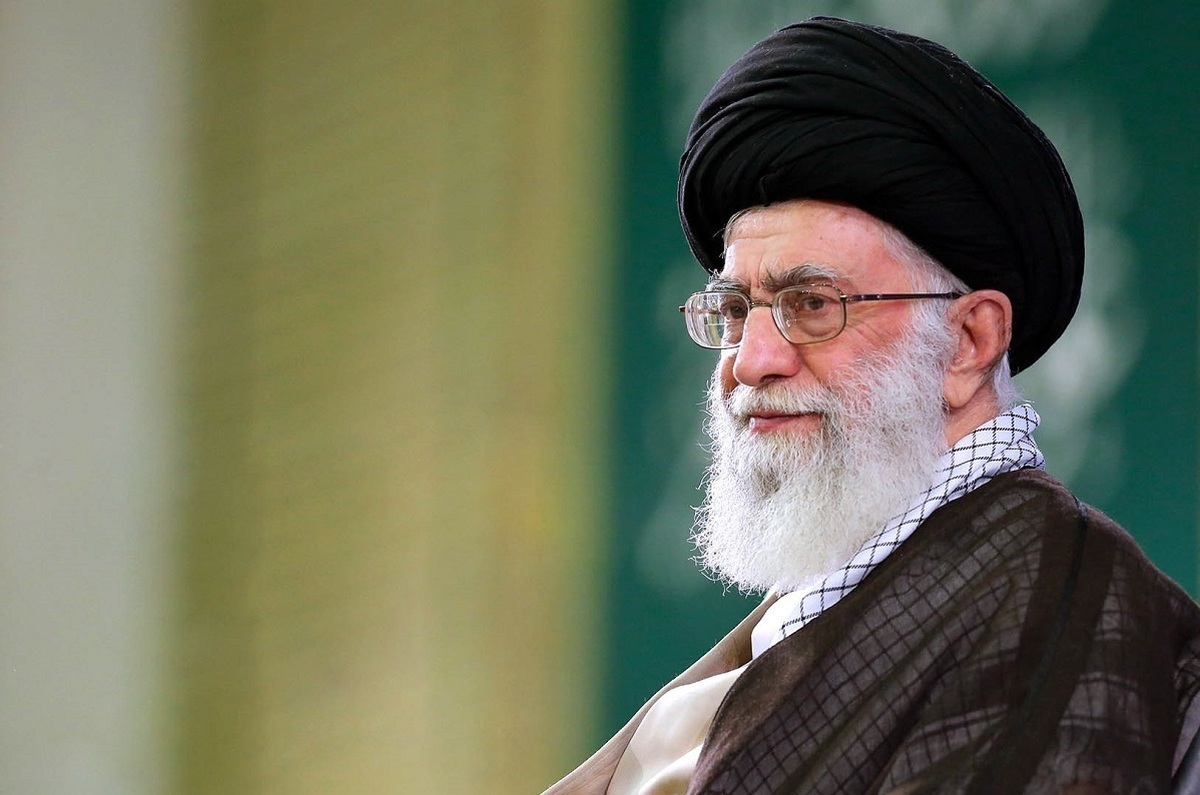
Supreme Leader: Economy is top priority
EghtesadOnline: Supreme Leader of Islamic Revolution Ayatollah Seyed Ali Khamenei said on Wednesday economy is the country's top priority.
Ayatollah Khamenei made the remarks in a meeting with President Hassan Rouhani and his cabinet on the occasion of the Government Week (August 23-29).
The Leader said that the Government Week is a good chance for government to explain its outstanding works to the people, according to IRNA.
Government Week marks the martyrdom anniversary of the former Iranian President Mohammad-Ali Rajaie and his Prime Minister Mohammad-Javad Bahonar died in a terrorist bombing by the terrorist Mujahedeen Khalq Organization (MKO) in 1981.
The Supreme Leader outlined his recommendations in seven topics: The Economy of Resistance, diplomacy, science and technology, security, culture, the 6th Five-Year Economic Development Plan (2016-21) and cyberspace.
The Supreme Leader warned against foreign efforts to clear disgraced MKO from the black record of terrorism.
Citing the Saudi treason to portray the criminals, who martyred thousands of ordinary civilians and outstanding officials and personalities, innocent and tarnish the brilliant image of the late Imam Khomeini, the Supreme Leader said that the enemies conspiracy about the MKO will fail as before.
The Supreme Leader said that the government should not get pre-occupied with issues about the upcoming presidential election, rather it should continue with efforts until the last day of its mission.
He said that the government should make plans to solve problems and the best advertisement for the government is its practices and achievements.
The Supreme Leader said that the Government Week is a precious opportunity for fair assessment of government services by people and the elite.
'Criticism is not harmful; however, the criticism should be fair coupled with presentation of the breakthrough made by the government.'
'Today, economic problems are the top issues of the country, which should be solved and it requires sound implementation of the policies of the Economy of Resistance,' the Leader said.
The Supreme said that the body in charge of the Economy of Resistance should monitor the scale and extensive economic activities of both the state and private sectors to make sure that all the activities fall in line with the policies of the Economy of Resistance.
'All the economic projects and plans not falling in line with the Economy of Resistance policies should stop.'
The Supreme Leader recommended the government to adopt special dialogue to promote the Economy of Resistance by giving a specific definition and clarity helpful for the executive officials involved in carrying out the plan.
He advised the government to delegate the duty of decisionmaking to the provinces, and channel the banking facilities and huge amount of liquidity to the manufacturing sector, introduce export incentives to the businessmen, on time payment of the price of agricultural products, and serious attention to villages and processing industries are the essentials in the context of the Economy of Resistance.
The Leader called for removal of the bureaucratic bottlenecks to regulate the issues related to the producers and entrepreneurs aa part of the Economy of Resistance.
The Supreme Leader drew attention of the government to support the knowledge-based companies as an item of the Economy of Resistance.
The Supreme Leader said, 'The projects that can be done inside by the knowledge-based companies should not be entrusted to the foreign companies.'
Foreign policy was the second top priority of government performance that was highlighted by the Supreme Leader.
'Foreign policy is one of the priorities of the government of Mr. Rouhani. I agree with the issue; I always believed in diplomatic work; however, the power of diplomacy should be distributed worldwide in an appropriate and balanced manner. Asia, Africa and Latin America should be granted the share they deserve in Iranian diplomacy. Such points as regional issues, that are highly complicated and intertwined. Diplomacy should go in parallel with vigilance, power of thought, actively and effectively.'
'The Diplomay must pursue definitive objectives and substantive goals.'
Ayatollah Khamenei said that the US breach of its JCPOA commitments should serve as a lesson.
'The experience teaches us not to trust promises of any US government and no concrete action should be taken in the face of their promises. My criticism about the JCPOA concerns the breach of commitment and hostility of the other party not our own elements because our negotiators did their best round-the-clock and we are thankful of their efforts.'
Ayatollah Khamenei said that science and technology must be the third priority of government in future and that the country is in need of science and technology in order for its progress and in the last years, good progress has been made in science and technology.
He criticised sluggish pace of scientific moves in the country in recent years compared to the fast speed of the scientific movement worldwide and Iran's long distance with the world in scientific progress.
The Leader said that there is no way but to make up for the gap, calling on the government to narrow the gap.
He urged dedication of more budget to academic research.
On security, which he cited as the fourth priority of the government, Ayatollah Khamenei said thanks to efforts of military and security forces Iran is provided with a strong security shield compared to regional countries that insecurity prevails.
Ayatollah Khamenei said enemy is scared of Iran's growing defense and missile defense power, so all efforts aiming to raise the defense power should be supported.
On culture, that was the fifth priority of the government, Ayatollah Khamenei said he supported free thinking but not the kind of thinking that supports flagrancy and allows enemy to harm the country.
The sixth priorty of government the Supreme Leader mentioned was the development programs in harmony with each other.
'So the sixth agenda should be speeded up and the work should not stop.'
The last point, the Leader emphasized was the cyberspace and said the cyberspace is a growing, very extensive and unstoppable world, providing all with great opportunity while posing threats at the same time.
The Supreme Leader called for maximum use of the opportunities the cyberspace provides and repelling due threats.
He added that formation of the national intelligence network and its speedy operation should be taken into consideration.
On irregular payments, the Supreme Leader said public trust was badly harmed because people and the educated class compare their own payment with the unfair payments questioning about the criteria.
He said that the three branches of government should not take it for granted and must strongly deal with.
'The judiciary should probe the case and deal with the violators.'




